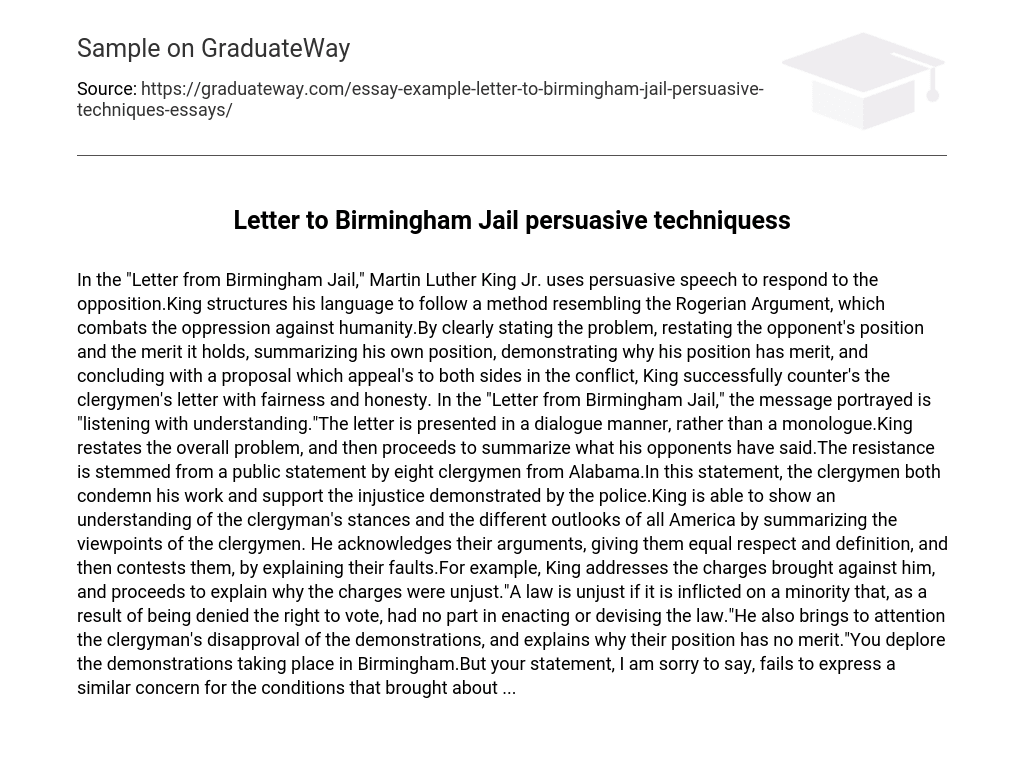In his “Letter from Birmingham Jail,” Martin Luther King Jr. employs persuasive rhetoric to address the opposing views. King employs a method similar to the Rogerian Argument, which counters human oppression. He effectively presents the issue, acknowledges the opposing viewpoint, emphasizes his own stance, supports it with evidence, and concludes with a proposal that appeals to both sides. This enables King to respond to the clergymen’s letter in a fair and sincere manner.
The “Letter from Birmingham Jail” presents the message of “listening with understanding” in a dialogue format instead of a monologue. Dr. King restates the overall issue and then provides a summary of his opponents’ viewpoints. This resistance stems from a public statement made by eight clergymen from Alabama. These clergymen condemn King’s work while supporting the injustice displayed by the police. By summarizing the clergymen’s perspectives, King demonstrates his understanding of their stances and America’s various outlooks. He acknowledges their arguments with respect and clarity, but also challenges them by exposing their flaws. For instance, King addresses the charges against him and explains the unjustness of these charges by stating, “A law is unjust if it is inflicted on a minority that, as a result of being denied the right to vote, had no part in enacting or devising the law.” Additionally, he brings attention to the clergymen’s disapproval of the demonstrations and dismisses their position by explaining, “You deplore the demonstrations taking place in Birmingham. But your statement, I am sorry to say, fails to express a similar concern for the conditions that brought about …”





